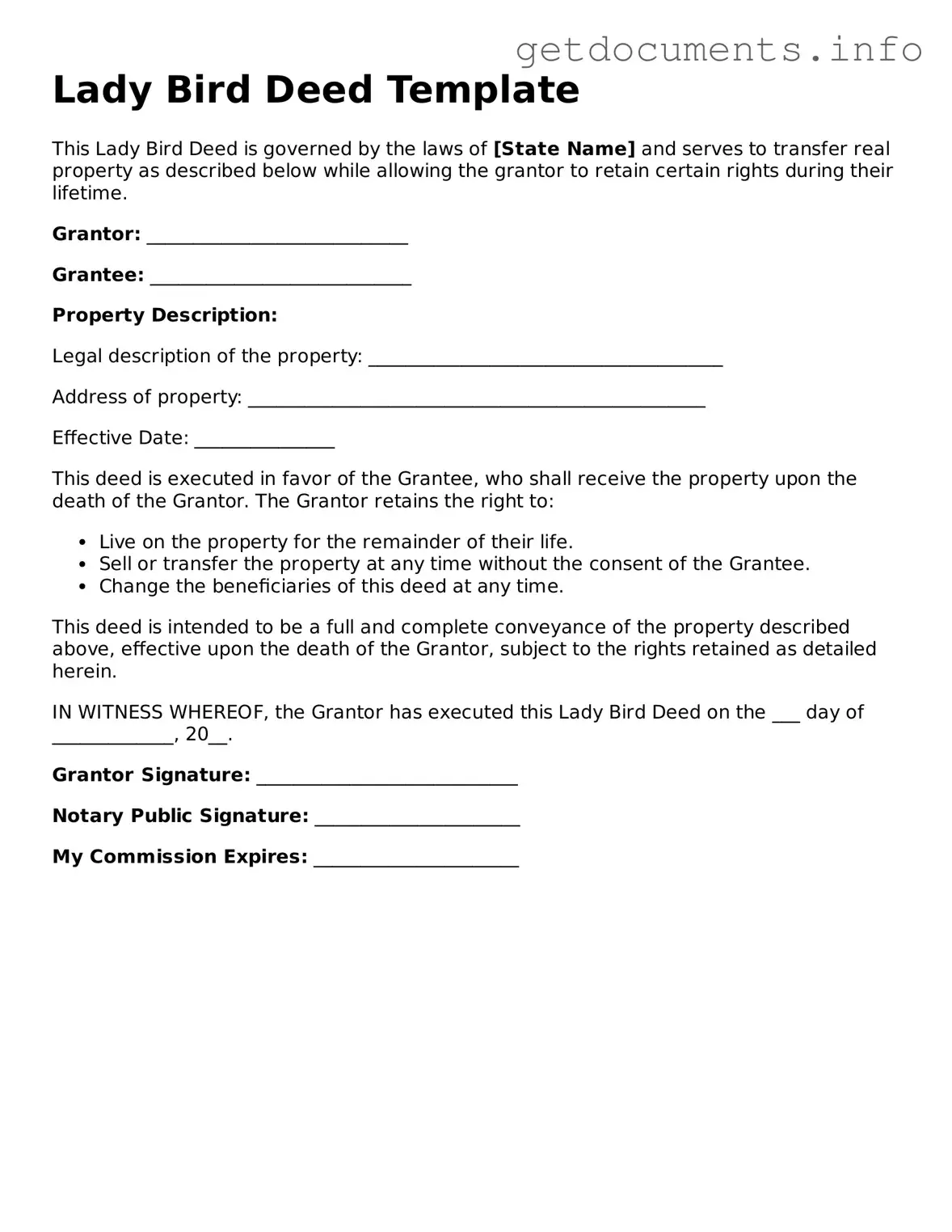Printable Lady Bird Deed Document
The Lady Bird Deed, also known as an enhanced life estate deed, allows property owners to transfer their real estate to beneficiaries while retaining the right to live on and control the property during their lifetime. This unique form of deed offers flexibility and can help avoid probate, making it an attractive option for many. If you're considering this option, take the next step by filling out the form below.
Access Lady Bird Deed Editor

Printable Lady Bird Deed Document
Access Lady Bird Deed Editor
Got places to be? Complete the form fast
Fill out Lady Bird Deed online and avoid printing or scanning.
Access Lady Bird Deed Editor
or
⇩ PDF File
